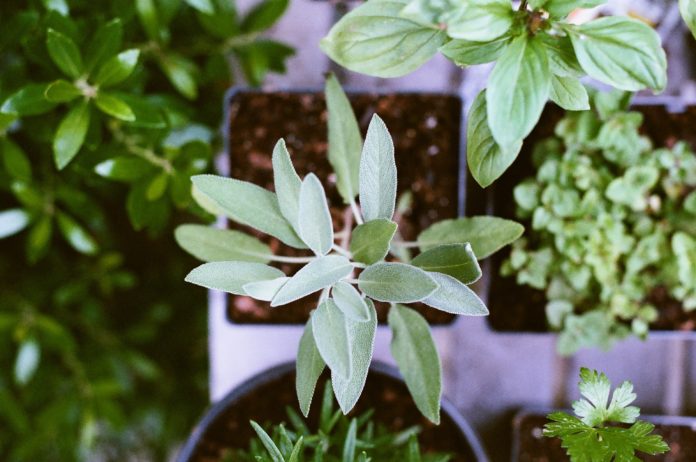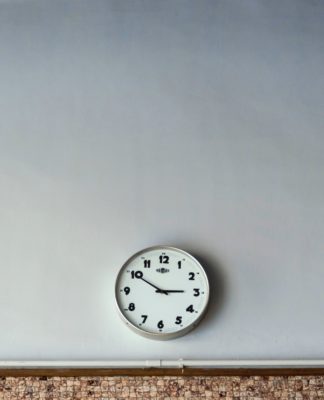
I have always liked the idea of being a gardener. But, as evidenced by my sad and half-dying plants, I do not posses a green thumb. I’m still unsure what exactly possessed me, but out running errands I purchased herb seedlings on a whim. I’m determined not to kill them immediately. And so begins the grand experiment.
The recent cold snap, reminding me that winter is right around the corner, did nothing to bolster my confidence that I could successfully keep any plant alive. However, through extensive research I discovered us Minnesotans can in fact still enjoy fresh herbs throughout the frosty winter. I’ve compiled a few tips to help you grow flavorful and hearty herbs so you can spice up your recipes, eat healthy all winter long, and hopefully avoid the hurdles I’ve stumbled across.
Grow Your Winter Herb Garden
Choosing Your Herbs
First, consider which herbs you’d like to grow. Perhaps you like to put mint in your tea or throw some thyme in your stew. On my impulse herb buying spree, it didn’t cross my mind that some herbs fare far better in cold weather than others. I lucked out buying chives and mint, but my poor basil will have to fight to last through the cold season.
These are the best and hardiest herbs for your indoor winter herb garden:
- Mint
- Oregano
- Thyme
- Chives
- Tarragon
- Sage
- Rosemary
You can grow other herbs, as I will attempt with basil, however, their flavor will be noticeably less robust and growth will struggle more throughout the winter. While I don’t use tarragon or sage on a daily basis, I’m fully embracing this opportunity to explore different recipes and use herbs I might not have tried otherwise. A grand experiment indeed.
Setting Up Your Garden
Especially during the winter months when the days are cut obscenely short, it is crucial for your herbs to receive the most light they can. Generally speaking, most herbs need at least six hours of direct sunlight to thrive. All-day sun is ideal. This intense light is what helps develop the oils within the herbs to create stronger fragrances and seasonings. Placement of your herb garden is key. Your herbs will be happy and enjoy the best light by southern and western facing windows.
However, it still may prove challenging for your herbs to receive their six hours of daily sun during the winter. So like me, you may choose to buy a grow light. Your grow lights certainly don’t have to be expensive but when deciding which light to buy make sure that it is a full spectrum light. This imitates the sun’s full spectrum which your herbs will need for growth. If you choose a grow light aim for twelve hours of artificial light daily to prevent growing thin and spindly herbs.
Watering
Most herbs enjoy well-drained soil. Make sure to plant your herbs in pots with a hole in the bottom for proper drainage. You don’t want your herbs sitting in water. You also don’t want to overwater. I’ve been given fair warning to be diligent during the winter months as gardeners are more prone to overwatering which can quickly lead to root rot and kill your herbs. Always err on the side of drier soil than overwatering.
So when should you water your herbs? The easiest way to know is to check if the soil is dry to the touch. Other signs that you should water are if the herbs become wilted or if you notice the tips of the leaves turning brown. It helps to stick to a watering schedule but if you happen to forget (definitely not me…) these herbs are quite resilient and will bounce back.
The Winter Cold
As hardy as these herbs are they don’t really appreciate the freezing temperatures. Most prefer a comfortable range between 65 and 75 degrees. You can help your herbs as best you can and avoid placing them near fans or in drafty and cool places in your home. And if you decide to place your herbs by the window to get that extra light make sure they don’t actually touch the cold window pane.
These herbs do also benefit from a bit of humidity which is quite scarce come winter. You might already have a humidifier for yourself during the wintertime and these certainly come in handy to help perk up your herbs as well. Another more DIY trick to create humidity is to congregate your herbs and place them on supports in a tray. Fill the tray with water and eventually the water will evaporate around the herbs providing them with moisture. Be sure not to mist your herbs or let them sit in water or they’ll be at risk of that pesky root rot.
Ask the Experts
My herb garden experiment is underway but for all my research I am certain I will fall into inexplicable situations I have no answers for. This is when you consult the masters. Well, the Master Gardeners. The University of Minnesota provides a hotline where you can ask a Master Gardener any question and they will get back to you with an answer within 48 hours. These are trained Master Gardeners who teach horticulture throughout the state and volunteer their time and expertise to help anyone wanting to learn more or desperate with a plant emergency!
Happy planting.
Find the number or email for your local Master Gardener with the U of M Master Gardener Hotline.
Read this next: Get your fresh, local produce at these Minnesota winter farmers markets
















